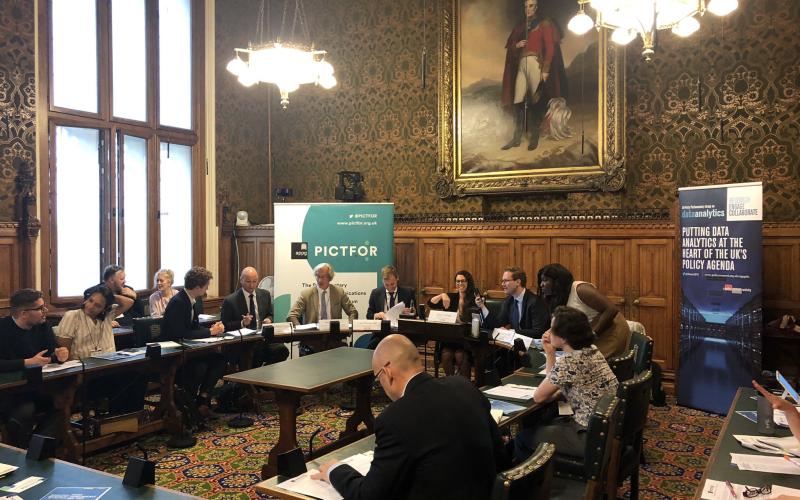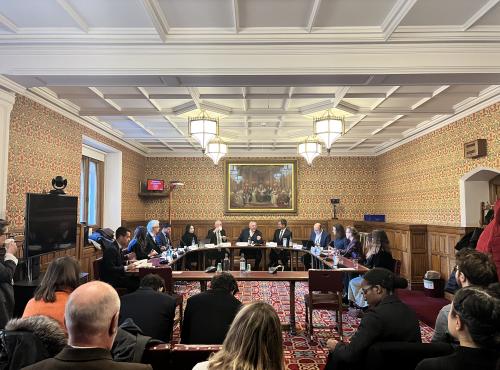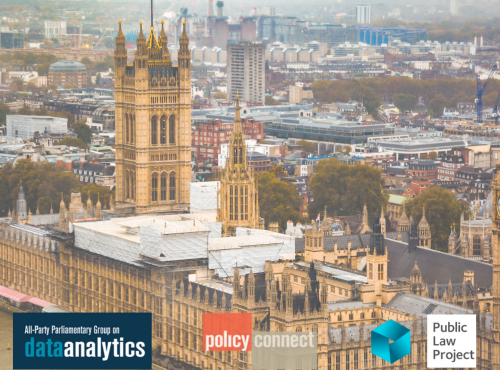What does an ethical digital world look like?
On Tuesday 6th July, the APGDA were delighted to partner with the Parliamentary Internet, Communications and Technology Forum (PICTFOR) to discuss the present state of technology and data ethics, following on from the release of the Group’s report into Trust, Transparency and Tech.
The event was held in the House of Commons under the watchful eyes of the 1st Duke of Wellington and brought together a range of senior figures from across the sector to discuss how policy makers can adapt to the rapid pace of change as part of the Fourth Industrial Revolution and the challenges and opportunities presented by big data, artificial intelligence and machine learning.
Speakers also discussed the recently published Online Harms White Paper, which sets out a national strategy for combating the negative impacts of social media on the body politic, such as the widespread dissemination of fake news.
The roundtable was chaired by Casey Calista, PICTFOR Secretariat Manager and Head of Tech & Digital at Lodestone Communications.
Opening the discussion, Darren Jones MP and Lee Rowley MP noted the recommendations arising from the APGDA’s report into technology ethics, especially the need to establish a so-called “Licence to Operate” to ensure that individuals are aware of how data and algorithms are being used. They also role of Parliament in facilitating and developing a positive relationship between the public, government, and industry bodies to ensure that individuals trust how organisations make use of public and personal data.
The audience then heard from Simon McDougall, Executive Director, Technology Policy and Innovation at the Information Commissioner’s Office, who highlighted the ICO’s regulatory duties and efforts to balance consumer rights with a culture of technological and data-driven innovation backed by ethical business models.
Floriane Fidegnon, Co-Founder and President of Warwick Women's Engineering Society and Member of Youth Steering Group for the Institute for the Future of Work, followed, noting the interdisciplinary nature of data ethics, noting that such principles needed to be incorporated into all areas of innovation and technological development. This needed to be accompanied by improved public discourse and total transparency during these processes.
Finally, Roger Taylor, Chair of the Centre for Data Ethics and Innovation, expressed a view that public engagement on the use of data must be extended and entrenched. He highlighted the ongoing work of the Centre to develop such an ethos, including their ongoing work on bias in algorithms and online targeting as part of their initial two year strategy.
Participants were then given the opportunity to express their opinions on the challenges and opportunities associated with the rise of big data. A range of views were expressed, with a particular focus on the disconnect between national governments, international bodies, and tech giants.
The roundtable marks the start of a year-long programme of events exploring the policy impact of the APGDA's recent report into technology and data ethics.






